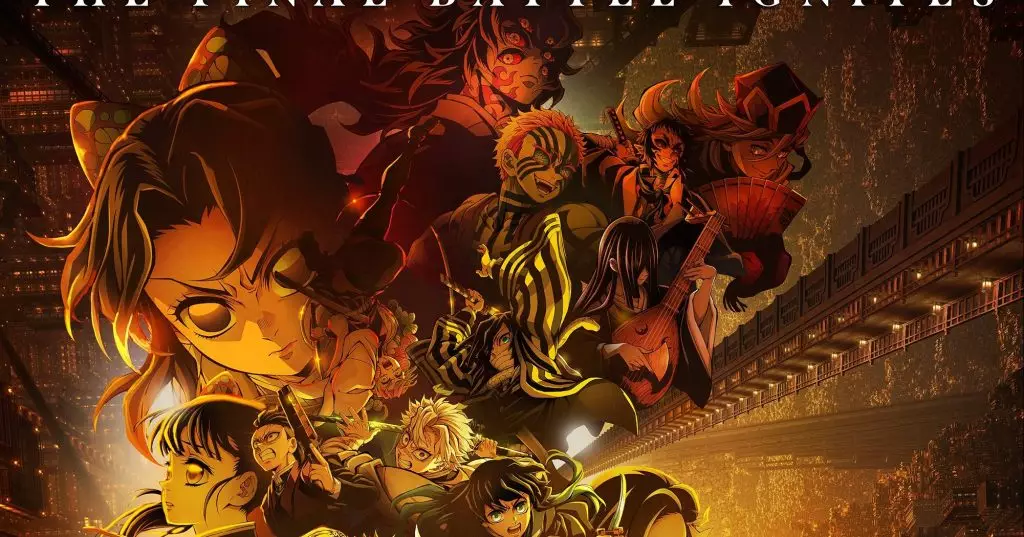The Illusion of Cultural Progress Through Consumerism
The overwhelming commercial success of Demon Slayer: Infinity Castle exemplifies how mass media and consumerism have become the primary vehicles of cultural influence. The impressive box office figures, including record-breaking Imax sales, prove that Japanese audiences are increasingly captivated by animated epics that blur the lines between entertainment and ideological narratives. Yet, this rise in popularity is less a testament to artistic excellence and more a reflection of a society that gravitates toward emotionally charged, easily digestible stories. It raises concerns about the quality of cultural discourse, which risks becoming centered on hollow visuals and adrenaline-driven plotlines rather than meaningful, nuanced storytelling.
The phenomenon also underscores how the modern entertainment industry tends to prioritize hype over depth. The rapid proliferation of sequels and cinematic universes, championed by American studios, has fundamentally changed the landscape of cultural consumption. Japan’s record-breaking demon saga becomes a microcosm of this global trend—where wars and tales of heroism are replaced with high-octane narratives designed less to challenge viewers and more to captivate them. This shift might foster a blinkered society increasingly consumed by escapism rather than critical reflection.
A Cultural Dynasty Built on Fads and Fantasy
Demon Slayer’s soaring numbers illustrate a broader tendency: the elevation of fantasy and escapism over pragmatic engagement with real-world issues. While the series might inspire loyalty and admiration for its animation craftsmanship, it perils cultivating a generation enthralled by fictional worlds that distort societal values. The story’s emphasis on demon hunting and supernatural heroics, while entertaining, diverts attention from more pressing social and economic realities—such as aging populations, economic stagnation, or political fragmentation.
Moreover, the cultural dominance of anime blockbusters may risk creating a monoculture where alternative perspectives are marginalized. Instead of promoting balanced cultural dialogues, the industry feeds a singular narrative of heroism, sacrifice, and the battle between good and evil, which, while captivating, lacks the complexity necessary for robust civic engagement. This influence shapes public perceptions—potentially reinforcing stereotypes or oversimplifying moral dilemmas—without fostering the depth of thought that more traditional cultural mediums could offer.
The Commercialization of National Identity and Global Influence
The international plans to distribute Infinity Castle internationally—beginning in North America and other markets—highlight how soft power is increasingly driven by entertainment. While global reach is a positive sign of cultural export, it also underscores the temptation to commodify national identity into readily marketable franchises. The risk here is that such narratives become vessels for consumerist agendas, diluting authentic cultural expressions in favor of universally appealing but superficial stories.
This phenomenon raises questions about the long-term implications of allowing global entertainment giants to shape perceptions of Japanese culture. It can lead to a homogenization of cultural identities, where local traditions are sanitized or flattened into marketable products that appeal broadly but lack depth or genuine insight. A healthy, resilient culture requires a careful balance—embracing innovation and popular appeal without surrendering core values to the siren call of commercial success.
While Demon Slayer’s record-breaking success is undeniably impressive, it warrants a critical perspective about the societal implications behind the numbers. Rapid consumption of high-intensity entertainment, especially when driven by spectacle rather than substance, poses risks to cultural literacy and civic engagement. Society should recognize that popular culture—while valuable—must be balanced with efforts to nurture critical thinking, historical awareness, and moral depth. If unchecked, the fervor for anime epics risks fostering a society more captivated by virtual heroics than tangible reality—an outcome that could diminish our collective resilience and civic vibrancy.

